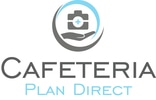|
Cafeteria plans, also known as Section 125 plans, allow employees to choose between cash and a range of benefits, such as health insurance, dental coverage, vision insurance, and retirement plans. One of the key advantages of cafeteria plans is that they offer pre-tax benefits, which can provide significant tax savings for both employees and employers. In this article, we will explore why cafeteria plans offer pre-tax benefits.
What are Pre-Tax Benefits? Pre-tax benefits are a form of tax-efficient compensation that allows employees to pay for certain expenses, such as health insurance premiums, with pre-tax dollars. By paying for these expenses with pre-tax dollars, employees can reduce their taxable income, which can lead to significant tax savings. Pre-tax benefits are also advantageous for employers, as they can reduce their payroll taxes by offering these benefits. How do Cafeteria Plans Offer Pre-Tax Benefits? Cafeteria plans offer pre-tax benefits through a process called salary reduction. Under a cafeteria plan, employees can choose to have a portion of their salary redirected to pay for certain benefits, such as health insurance or a flexible spending account. Since these contributions are made before taxes are calculated, they are considered pre-tax dollars. As a result, employees can reduce their taxable income, which can lead to lower taxes and more take-home pay. Why Do Cafeteria Plans Offer Pre-Tax Benefits? Cafeteria plans offer pre-tax benefits for several reasons. First, pre-tax benefits can provide significant tax savings for both employees and employers. By reducing taxable income, employees can lower their income tax liability, while employers can reduce their payroll taxes. This can help make benefits more affordable for employees while also reducing costs for employers. Second, offering pre-tax benefits can help employers attract and retain top talent. By offering a comprehensive benefits package that includes pre-tax benefits, employers can demonstrate their commitment to providing a competitive compensation package. This can be particularly important in a competitive job market where employees are looking for comprehensive benefits packages that provide tax savings. Finally, cafeteria plans are regulated by the Internal Revenue Service (IRS) and must comply with specific federal regulations. By offering pre-tax benefits through a cafeteria plan, employers can ensure that their benefits package is compliant with these regulations and take advantage of tax benefits while avoiding costly penalties. In conclusion, cafeteria plans offer pre-tax benefits to provide tax savings for employees and employers, attract and retain top talent, and comply with federal regulations. By offering a comprehensive benefits package that includes pre-tax benefits, employers can create a more competitive compensation package and demonstrate their commitment to supporting their employees' financial well-being.
0 Comments
|
Small Business blog
Archives
June 2023
Categories |

 RSS Feed
RSS Feed
